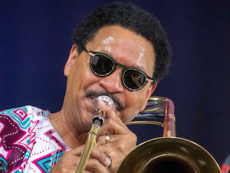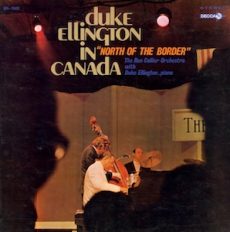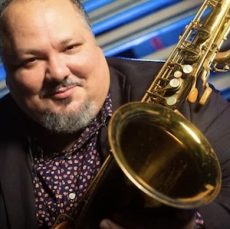
DELFEAYO MARSALIS SEXTET
More Posts: adventure,club,genius,jazz,music,preserving,travel,trombone

DELFEAYO MARSALIS SEXTET
He will presents his sextet in an intimate experience like no other!
More Posts: adventure,club,genius,jazz,music,preserving,travel,trombone

MINGUS DYNASTY
Mingus Dynasty was the first band Sue Mingus organized after Charles Mingus’ death in 1979, collaborating with his own sidemen to honor his life and work. Although Mingus was an iconic and trailblazing bassist, he always said he was first and foremost a composer, and he left behind over 300 composition that deserved to be played. So a band carrying on his music became a natural, if unanticipated, mission. Today, four decades later, the powerful legacy of Mingus Music ignites bandstands as new generations of musicians express their individual voices and musical personalities, and celebrate and explore this rich and varied musical legacy.
Please arrive 30 minutes before the show your attending. Call for ticket information.
Philip Harper | Trumpet
Mark Gross | Alto Saxophone
Abraham Burton | Tenor Saxophone
Robin Eubanks | Trombone
Miki Yamanaka | Piano
Barry Stephenson | Bass
Donald Edwards | Drums
More Posts: adventure,bass,club,drums,genius,jazz,music,piano,preserving,saxophone,travel,trombone,trumpet

Daily Dose Of Jazz…
Ron Collier was born on July 3, 1930 in Coleman, Alberta, Canada and began his musical training in Vancouver, British Columbia, Canada. He was a member of the Kitsilano Boys’ Band. He studied music privately in Toronto with Gordon Delamont and was the first jazz musician to receive a Canada Council grant that led him to study orchestration in New York in 1961 and 1962.
He formed the Ron Collier Jazz Quartet, which performed in the 1950s at the Stratford Festival and on CBC’s Tabloid with Portia White, and in 1963 with the Winnipeg Symphony Orchestra.
Duke Ellington performed with the Ron Collier Orchestra on the 1969 album North of the Border in Canada. The album included his compositions and those by several Canadian composers. He also created orchestrations for a number of Ellington’s concerts and recordings.
He composed the scores to three films in the 1970s and began directing a student orchestra at Toronto’s Humber College. His band won the Big Band Open Class at the Canadian Stage Band Festival in 1982. He would go on to perform in and lead a number of jazz groups.
Trombonist, composer, and arranger Ron Collier, who was made an Officer of the Order of Canada, died on October 22, 2003 in Toronto, Canada at the age of 73.
More Posts: arranger,composer,history,instrumental,jazz,music,trombone

MICHAEL DEASE
Master saxophonist and four-time Downbeat Critic’s Poll Winner for Trombonist of the Year Michael Dease honors the spirit of his former bandleader Roy Hargrove with a Quintet featuring fellow Hargrove alum Andre Hayward. Dease is a prolific session musician, longtime fixture in the bands of Jimmy Heath, David Sanborn and Christian McBride and a fiery, soulful improviser on several instruments. He is also a deeply committed educator and serves as Full Professor of Jazz Trombone at the prestigious Jazz Studies program at Michigan State University.. Join us at Parker Jazz Club to celebrate his 19th recording as a leader, “Grove’s Groove” on Le Coq records.
Lineup: Michael Dease ~ baritone saxophone, trombone | Andre Hayward ~ trombone | Ross Margitza ~ piano | Ryan Hagler ~ bass | Gerry Gibbs ~ drums
More Posts: adventure,club,genius,jazz,music,preserving,saxophone,travel,trombone


